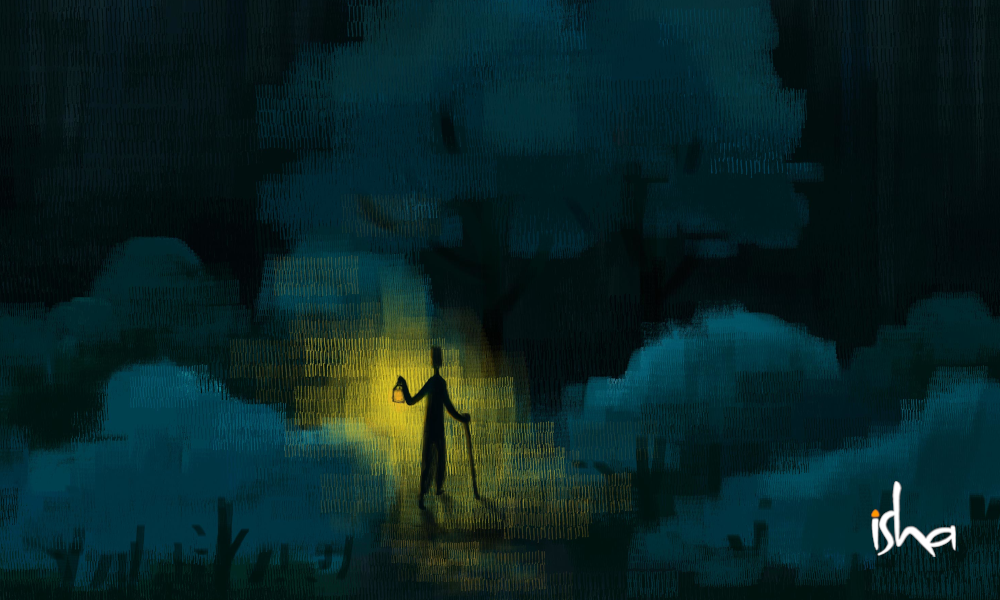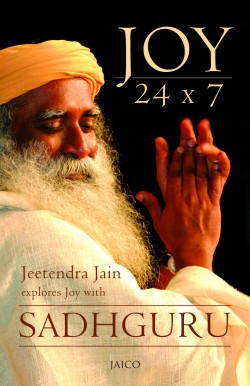
The librarian held her young audience captive. Her storytelling skills were just as beautiful as the story itself. Each child was able to experience the tale as if they were the main character. Smiles permeated the room, like sunshine creating a rainbow on a partially open window.
Every culture has their traditional and even modern stories. Often, a moral aspect is interwoven into the story, or even esoteric knowledge rings a subtle bell throughout the lines. Either way, stories can help people when they need it most, can bring people together, and can create a profound understanding where once there was confusion and doubt.
The story below is one such example. Through this story Sadhguru reminds us how rituals, very much a part of Indian culture, can become like a blind man carrying a lamp.
Story: A blind man stayed with his friend for a few days, and then started for his hometown in the night. His friend gave him a lit lantern, but the man protested, “Why do I need a lantern? Everything is the same for me. For someone who is blind, what is the use of carrying a lamp?”
“My dear friend, this is not for you; this is for the person who comes in front of you. If you have this lamp in your hand, the person who comes in front of you will not bump into you.”
“In that case, I will take it,” the blind man said.
He took the lamp and started walking in the dark. In spite of that, someone collided into him head-on down the road. The blind man lost his balance and fell down. He got angry and asked, “Why did you bump into me? I had a lamp with me – can’t you watch where you’re going?”
“What lamp? I don’t see anything,” said the man who bumped into him and looked around.
Then he found the lamp and said, “Oh yes! There is a lamp here, but the flame had gone out long ago, my dear friend.”
Sadhguru: The man held the lamp in his hands for the light it gave. Holding it high and walking even after the flame died out is just a meaningless ritual. Many things that we started in our life with a purpose have lost their original quality and are continuing as mere rituals.
There is a certain tradition in Karnataka. If non-vegetarian food is served to a guest at someone’s home, they will keep a pestle next to the leaf on which food is served. I asked many people the reason for this, but they did not know. After asking several elderly people who were well-versed in the culture, I found out the answer.
Earlier, the tradition was to keep a small stick next to the leaf as a toothpick, in case the person got something stuck between his teeth. As time went by, they replaced the tiny toothpick with a stick and then some fool started putting a pestle instead of a stick. Later, this became the standard practice without anyone asking for an explanation. Can anyone use a pestle as a toothpick?
This is how we create certain processes to benefit our lives. But when we forget why these processes were fundamentally created and start following things simply because our grandfathers and fathers did it, it becomes a mere ritual. Because we do not understand why something was done in our tradition generation after generation, we are confused about whether it is needed for our life or not.
Like a blind man carrying a lamp, certain tools that were created to guide us in our lives have become superstitions. It is high time we understand their true purpose and make them into lamps to guide us in our lives. Otherwise, we should at least create new tools to guide us.
-
Sayan Chakraborty October 21, 2019 at 1:27 pmThis is amazing and inspiring! Loved the story and sarcasms. I understood the moral, can you also explain me the last line " create new tools to guide us" ?




